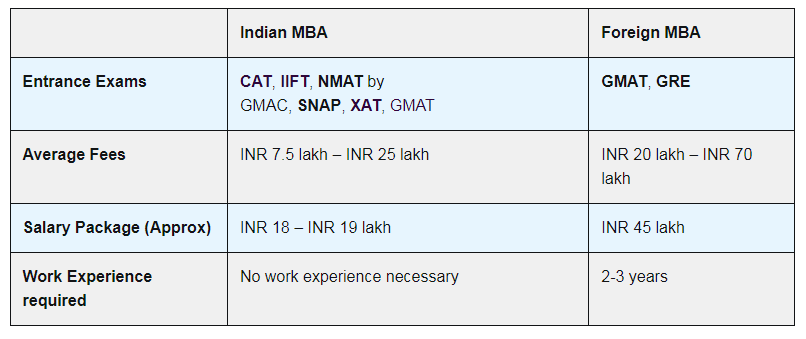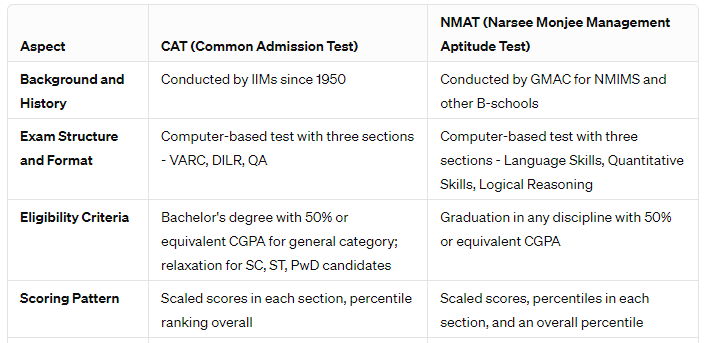Navigating the Crossroads: MBA in India vs. Abroad

When deciding between an MBA in India or abroad, you can consider your background and aspirations In this blog, we're going to be your career GPS, breaking down the economic landscape and showing you why an MBA is like having a secret weapon for career resilience. We want to make sure you're armed with the right knowledge as you gear up for your own adventure. So, buckle up, and let's explore why choosing an MBA might just be the game-changer you've been looking for in these uncertain times! 🚀✨
Here's the difference between Indian MBA and Foreign MBA

MBA in India
Pros:
- Cost-Effective
- Cultural Familiarity
- Networking
- Job Market Insights
- Industry Connections
Cons:
- Limited Global Exposure
- Varied Institution Reputation
- Language Comfort
- Visa Hassles for International Jobs
- Moderate ROI
Also Read: Navigating MBA vs PGDM
MBA Abroad
Pros:
- Global Exposure
- Networking Opportunities
- International Job Markets
- Institutional Reputation
- Potential for Higher ROI
Cons:
- Adapting to Different Cultures
- Language Challenges
- Visa Complexities
- Varied Employment Opportunities
- Adjustment Period
**Frequently asked questions (FAQs) **
Here are some frequently asked questions (FAQs) that individuals might have when considering whether to pursue an MBA in India or abroad:
Q.1) Why should I consider pursuing an MBA in India?
Answer: Pursuing an MBA in India offers advantages such as lower tuition costs, familiarity with the local business environment, and strong industry connections.
Q.2) What advantages does an MBA abroad offer over an Indian MBA?
Answer: An MBA abroad provides exposure to diverse cultures, global business practices, access to top-ranking institutions, and potentially a broader range of job opportunities.
Q.3) How does the cost of an MBA in India compare to that abroad?
Answer: Generally, tuition and living costs are lower in India, making it a more cost-effective option. However, pursuing an MBA abroad may offer a higher return on investment.
Q.4) Is global exposure crucial for career success in today's market?
Answer: It depends on your career goals. While global exposure can be advantageous, certain professions may thrive on local expertise.
Q.5) What role does the reputation of institutions play in career prospects?
Answer: Institutions with global recognition may open doors internationally, while local reputation is crucial for success in regional industries.
Q.6) Are language barriers a significant challenge in pursuing an MBA abroad?
Answer: English is the primary language of instruction, but non-native speakers might face initial challenges in adapting to different accents and communication styles.
CAT Credentials - Your Path to Success
Here’s how CAT Credentials will help you:
- 250+ Hours of classroom lectures
- Hard Copy of Notes
- Practice Videos
- Portal Access with (Sectional/ Topic test)
- 30+ Mock Tests
- Doubt Solving Session
- Individual Guidance
- Profile making
- GDPI
- Foundation Building For MBA
Conclusion:
In choosing between an MBA in India and abroad, consider your priorities. If cost and familiarity are key, India may be ideal. For global exposure and top-tier institutions, abroad is compelling. Each path has its pros and cons, and success hinges on aligning your decision with personal and career objectives






